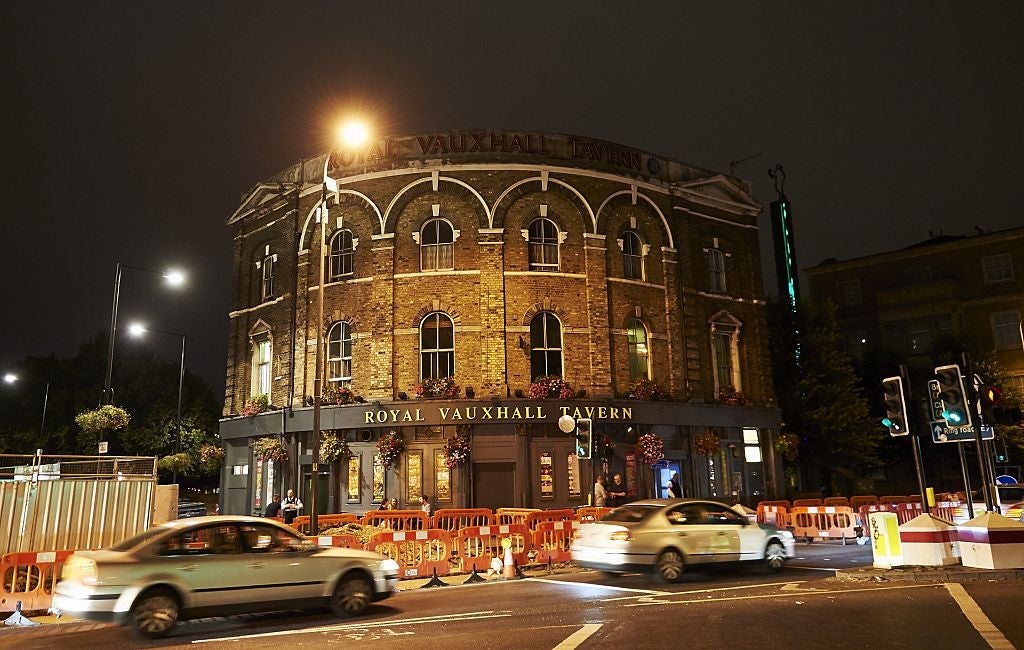
Vauxhall in south-west London is a masterclass in urban transformation. Those who walked its streets just 15 years ago are met today with a foreign land, for better and for worse. In fact, no other part of London has witnessed such dramatic transformation in recent years, redolent of Canary Wharf’s facelift between 1980 and 2000.
Although Vauxhall is now optically dominated by a slew of modern high-rise apartments, the neighbourhood’s historic nightlife and social diversity has held strong – but not without a fight.
How to regenerate without laying waste
The nighttime economy is estimated to bring in more than £60bn to the UK market every year. In London, two in three people are consumers at night, and the demand for nighttime activities is only set to increase as the population grows, according to research by the Greater London Authority.
In short, thinking carefully about life beyond daylight hours cannot be overlooked by urban planners, or taken for granted.
London’s nightlife has been under threat for more than two decades, well before Covid-19. For example, the number of LGBTQ+ venues fell by two-thirds between 2006 and 2017, alongside the shutdown of some of London’s best-known clubs. It is no secret that urban regeneration, when planned poorly, leaves many evening and music venues out of licence due to sound complaints (among other issues), as exemplified by the spree of closures across Tottenham in the past two years.
While the aforementioned decline has now stabilised across some parts of the city, there is a pressing need to safeguard and celebrate Vauxhall’s role as the home of a large cluster of LGBTQ+ venues and businesses (in fact, the area’s wider borough of Lambeth is home to the highest LGBTQ+ resident population in the UK) – and this is nothing new. Vauxhall has a long history as a popular nightlife destination, with Vauxhall Pleasure Gardens defining London’s nightlife in the 18th and 19th centuries.
How well do you really know your competitors?
Access the most comprehensive Company Profiles on the market, powered by GlobalData. Save hours of research. Gain competitive edge.

Thank you!
Your download email will arrive shortly
Not ready to buy yet? Download a free sample
We are confident about the unique quality of our Company Profiles. However, we want you to make the most beneficial decision for your business, so we offer a free sample that you can download by submitting the below form
By GlobalData“Today, it is a diverse neighbourhood with significant Portuguese-speaking and black African populations as well as one of London’s most dynamic LGBTQIA+ communities,” councillor Claire Holland, leader of Lambeth Council, tells Investment Monitor.
“Now is a time of transformation for the area, as it welcomes increasing numbers of new residents and businesses. This growth must be inclusive and balanced, meeting the needs of all.”
Holland hopes that Vauxhall’s new status as a Night Time Enterprise Zone will help the council work with its community partners to create new activities, spaces and employment opportunities in the area that support local nightlife venues, boost economic activity after 6pm, and benefit everyone. As the Mayor of London, Sadiq Khan, strives to make the capital a 24-hour city, he has named Vauxhall as one of three Night Time Enterprise Zones.
A closer looks at Vauxhall’s ongoing rise
With a huge pipeline of commercial office space set to create 8,000 new jobs, and the resident population set to soar by 36% between now and 2035, Vauxhall is already booming. However, there is still an untapped economic opportunity bubbling in south-west London.
Vauxhall is London’s fastest-changing riverside district. It is already home to more than 1,330 businesses spanning the creative and digital industries, with high-growth fintech businesses such as Nutmeg and Clear Score, alongside government bodies (the Foreign and Commonwealth Office), large workspace providers (The Office Group), and a gallery district that includes Damien Hirst’s Newport Street Gallery.
New arrivals include the American Embassy, Apple, Penguin Random House and a new London South Bank University campus, not least as businesses in Vauxhall are connected to an 8.8 million catchment area of talent by public transport (while two million people are within a 30-minute walking and cycling radius of Vauxhall). Vauxhall’s population is mostly made up of professionals aged between 20 and 44 with a strong interest in arts, culture and health and well-being.
The 200,000m2 of office floorspace currently in Vauxhall is set to grow by 50% in the next five years. This does not include the huge amount of commercial space that can be brought forward through the planned strategic extension of the Low Line, involving the activation of 250 railway arches.
Vauxhall is also a major transport interchange with national rail, the underground, night tube and the second-busiest bus station in London. By 2035, almost 61 million people are expected to pass through its underground turnstiles every year – many more than the 50 million tourists that travel through Times Square in New York annually.
In terms of its nightlife, Vauxhall is a hub of activity, with at least 5,000 visitors between the hours of 8pm and 4am on any day of the week. It is home to one London’s most dynamic LGBTQ+ communities, and renowned for iconic venues such as the Royal Vauxhall Tavern and The Eagle.
Despite all of this, footfall of office workers in the area drops significantly after 6pm. The need for employers to provide a compelling offer to draw people back to the office means there is support for a nighttime offer that encourages employees to stay in the area and spend into local businesses and services after hours. During a Night Time Enterprise Zone pilot project in Walthamstow, north-east London, in 2019, high street footfall increased by 22%, proving that nighttime activity can be as profitable as daytime activity.
“Innovative commercial investments are being undertaken in Vauxhall alongside the huge amount of regeneration and investment happening in the residential space,” says Jacob Loftus, chief executive of General Projects, one of Vauxhall’s main property developers, alongside Berkeley Group, R&F and Great Marlborough Estates. “General Projects and BA Pension Fund have bought a former MI5 bunker to transform into a 100,000ft2 creative enterprise and experience complex. Planning has been obtained for a mix of leisure experiences, creative workspace and educational spaces, which will bring together an exciting mix of users around the clock within a new creative campus.”
Plans are also under way for the gyratory to be replaced with a new town square and public realm projects will bring the heart back to Vauxhall.







